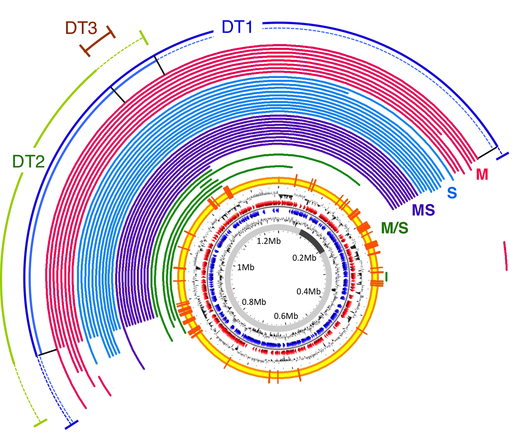 Image via Nothing in Biology Makes Sense.
Image via Nothing in Biology Makes Sense.Over at the collaborative science blog Nothing in Biology Makes Sense!, guest contributor Levi Morran examines the processes by which bacteria can lose genes over generations of evolution.
In a recent paper, Lee and Marx (2012) test both how and why they observe large-scale patterns of gene loss in their experimentally evolved populations of Methylobacterium extorquens. They evolved these bacterial populations under different treatments of resource availability (realms of specialization) and found that all replicate populations adapted to their specific treatment over 1,500 generations. During experimental evolution, 80% of the bacterial populations exhibited nearly a 10% reduction in genome size, and many of the gene losses occurred in similar regions of the genome, some even across treatments.
To learn how and why those genes disappeared, go read the whole thing.◼
